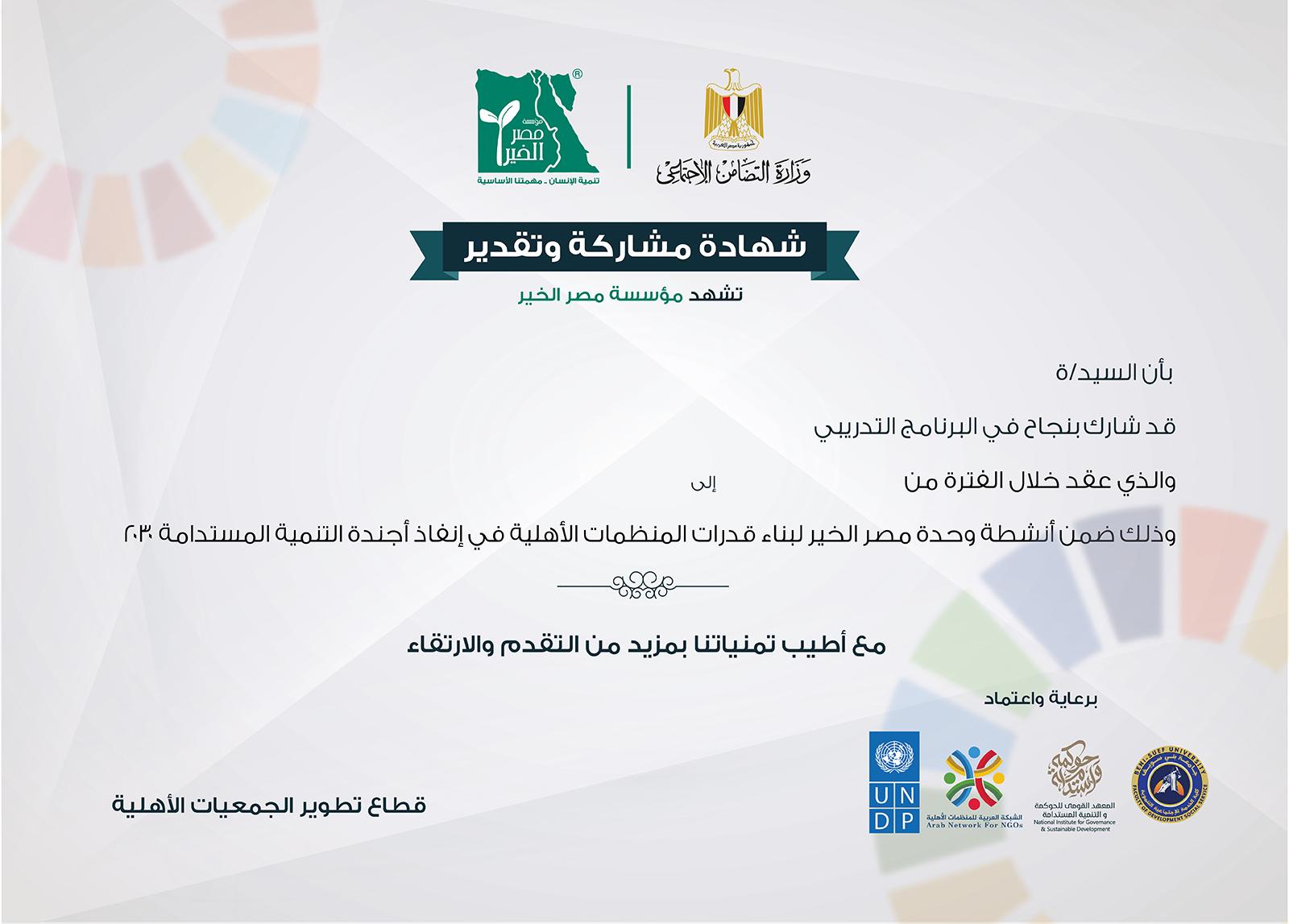Training Courses in Institutional Capacity Building
Innovative methods of making decisions and solving problems.

Training Description
The administrative methods adopted by the organization determines the organization's ability to achieve its societal goals that the application of sound administrative methods in all administrative operations carried out by the organization ensures the control of resource management in a manner that is efficient and effective, especially since the resources and the availability of one of the challenges facing civil organizations. The leadership followed by the organization and methods of making and taking decision -making and how to manage and solve problems is one of the most influencing factors in the efficiency of executive administrative operations and contributes to achieving the administrative flexibility of the organization in the case of following the latest methods and methodologies that contribute to this.

Training Period
3 training days
Target Group
Workers in the executive management and project management in civil organizations
Training Start
almost
Training Goals
Main Goals:
Developing the skills of members of civil organizations and their workers in methods of solving problems, how to prepare reports and use electronic transformation in project management and decision -making.
Secondary Goals:
By the end of this training course, the participants have the ability to:-
1- Learn about the concept of management and its functions.
2- Determine the difference between the manager and the leader.
3- Monitoring the role of the manager in making the proper decision.
4- Exercising the methods of identifying and analyzing problems.
5- Using various scientific methods to solve problems.
6- Knowing the concept, importance and objectives of writing the reports.
7- Applying decision-making methods.
8- Determining the importance of using electronic transformation in making decisions and managing projects.
Main Topics
Sustainable development as an introduction to the development of society.
- The most important requirements for achieving sustainable development goals.
- The relationship of innovative methods of making decisions and solving problems with the requirements of achieving sustainable development goals.
- The concept of good judgment (good judgment) and the concept and types of organizations
Administration, its functions, levels, and the difference between the leader and the manager
- The concept, importance and stages of decision -making and the role of the manager in making decisions
- Methods, methods of identifying and analyzing problems, methods of choosing a priority problem and problem -solving strategies
The concept of creativity, innovation and methods of creative thinking
- The importance, goals, shapes and stages of writing reports and characteristics of the good report
Electronic shift in project management and decision -making
• Practical applications
Certificate
To obtain a certificate of attendance course, it must:
1. Commitment to attend at least 75% of the actual days of training.
2. Commitment to assignments and applied papers for training.
Training certificate is accredited by the Misr Al -Khair Foundation and several specialized international and local organizations.

Trainers

Mr. Mustafa Othman
Submit a Request to Participate in Training
You must log in first to request participation in the training
LoginReviews
Mina Moukhtar Aziz
Feb 19, 2023التدريب مفيد جدا وخاصة الموضوعات المتناولة به
showing 1 to 1 of 1 Review